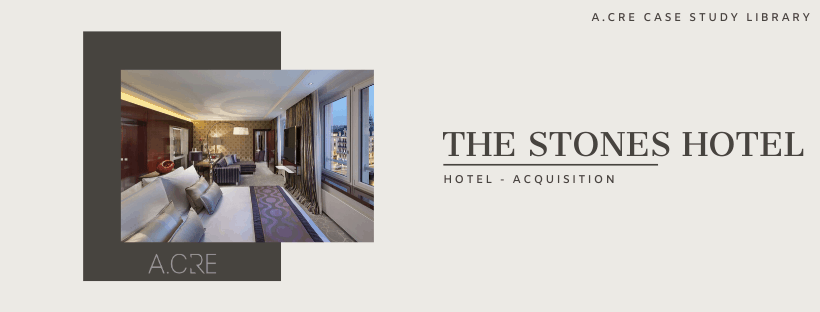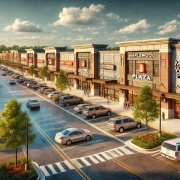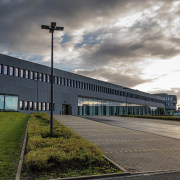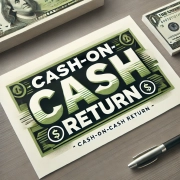Case Study #4 – The Stones Hotel Acquisition – Case Only (Updated May 2024)
This case study on hotel acquisition is the fourth in a series shared by A.CRE, designed to enhance your skills in real estate financial modeling. In this scenario, you take on the role of an associate at a prominent firm specializing in debt and equity capital for value-add and opportunistic hospitality investments. Your task is to evaluate a potential value-add investment in The Stones Hotel, and subsequently determine the pricing for either mezzanine debt or preferred equity for an existing JV partner.
Practice makes perfect!
Each case study shared in this series mirrors real world situations, either in terms of the types of deals you will look at in various roles or the types of modeling tests you’ll be required to perform as part of the interview process. You can browse this and other case studies in the A.CRE Library of Real Estate Case Studies.
Are you an Accelerator Advanced member? Download this case study for free and discuss possible solutions with other Accelerator members in the Career Advancement Endorsement. Not yet an Accelerator member? Consider enrolling today in the Accelerator, the industry’s go-to real estate financial modeling training program used by top companies and elite universities to train the next generation of CRE professionals.
The Stones Hotel – Case Study Overview
You are a second-year associate at A.CRE Capital, a leading provider of debt and equity capital for value-add and opportunistic hospitality investments across Europe and the UK. Your investments are most commonly in the form of senior bridge debt, mezzanine financing, and preferred equity. In all cases, your position in the capital stack has priority over the common equity brought by the sponsors in the investments.
You’ve recently been approached by a long-time partner about providing mezzanine debt or preferred equity to partially capitalize a 250-key hotel acquisition in the CBD of a major market within your territory. Before taking the opportunity to your boss and talking through structure and pricing, you’ve decided to first assess the viability of the investment opportunity itself.
The Stones Hotel Acquisition – Financial Modeling Technical Interview
This is a variation of a timed technical interview test previously given by a global real estate private equity firm as part of its hiring process.
Participants are given 60 minutes to complete this test.
Assumptions – The Stones Hotel
- 5-year hold period
- 250 rooms
- Acquisition price of € 200k/room
- Acquisition costs are 2% of purchase price
- Debt
- 70% loan-to-cost (LTC)
- 5% interest rate, and requiring mandatory annual debt amortization based on
- 25-year annual amortization period
- Occupancy
- 60% in Year 1, 65% in Year 2, 70% in Year 3, and 75% thereafter
- Average Daily Rate (ADR)
- € 325 in Year 1, growing at 5% in Year 2, 4% in Year 3, and 3% thereafter
- Room Revenues equal 75% of total revenues and other revenues make up the remaining 25% to get Total Revenues
- Assume the following EBITDA margins:
- 20% in Year 1
- 23% in Year 2
- 25% in Year 3
- 30% thereafter
- Capex reserves are 4% of total revenues
- For the exit value, assume a 13x on T12 EBITDA with 2% transaction costs
Questions – The Stones Hotel
- What is the unlevered and levered IRR?
- What is the Peak Equity and WDP (whole dollar profit, i.e., undiscounted profit after recovery of the original basis)?
- Please build sensitivity tables showing the results for the levered IRR and levered WDP with the following variables:
- Exit multiple vs. hold period
- Acquisition price vs. exit multiple
- Loan-to-cost vs. cost of debt
CREATE YOUR OWN CASE STUDY
This case study offers a view of the strategic decisions involved in a real estate hotel acquisition. As you apply the provided data and strategies in your financial models, you’ll gain insights into optimizing asset value and ensuring investment criteria are met, key skills for any CRE professional. For those looking to deepen their expertise, our Real Estate Case Study Creator provides a platform to test and enhance your modeling skills in a controlled, realistic setting.
This GPT creates completely custom real estate case studies from scratch and allows users to craft case studies to simulate scenarios they are interested in or expect to encounter in their professional lives. This customization allows users to focus on particular areas of interest or challenge, making the practice sessions as relevant and effective as possible.
Additionally, after completing this Case Study #4 – The Stones Hotel Acquisition, you can use the Real Estate Case Study Creator GPT to analyze your results and provide an assessment of your strategies and outcomes. We encourage both seasoned practitioners and newcomers to use this resource to refine their approach and decision-making in commercial real estate investments.
- Note: Custom GPTs are now available to both paid and free users of ChatGPT. Click here to learn more.
Frequently Asked Questions about The Stones Hotel Acquisition Case Study
What is the objective of the Stones Hotel case study?
To evaluate a value-add hospitality investment and determine suitable pricing for mezzanine debt or preferred equity. The case simulates a technical interview scenario where you analyze the deal, calculate returns, and assess risk metrics.
What are the acquisition assumptions for the hotel?
The acquisition involves a 250-room hotel at €200,000/room, totaling €50 million. Acquisition costs are 2% of the purchase price. The hold period is 5 years, with revenue and margin growth assumptions over time.
What are the assumptions for the senior debt?
The senior debt is based on 70% loan-to-cost, carries a 5% interest rate, and includes mandatory amortization using a 25-year amortization schedule.
How are occupancy and ADR forecasted over the hold period?
Occupancy increases annually from 60% in Year 1 to 75% in Year 4 and beyond. ADR starts at €325 and grows at 5% in Year 2, 4% in Year 3, and 3% annually thereafter.
How are total revenues and EBITDA margins calculated?
Room revenue is 75% of total revenues, with the remaining 25% from other income. EBITDA margins start at 20% and increase to 30% by Year 4.
What are the key exit assumptions for the investment?
The exit value is based on a 13x multiple of T12 EBITDA, with 2% transaction costs deducted at sale.
What financial metrics must be calculated?
You are expected to calculate both unlevered and levered IRRs, Peak Equity, and Whole Dollar Profit (WDP). These should reflect the investment performance with and without leverage.
What sensitivity analyses are required in the case study?
You are asked to build sensitivity tables for:
Levered IRR and WDP vs. Exit Multiple and Hold Period
Acquisition Price vs. Exit Multiple
Loan-to-Cost vs. Cost of Debt
What role does the participant play in the case?
You take on the role of a second-year associate at a hospitality-focused capital provider, evaluating a real investment opportunity before recommending a capital structure (mezzanine debt or preferred equity).
What skills does this case study help develop?
It develops technical modeling skills, investment underwriting, sensitivity analysis, capital stack structuring, and decision-making in hospitality real estate finance.









